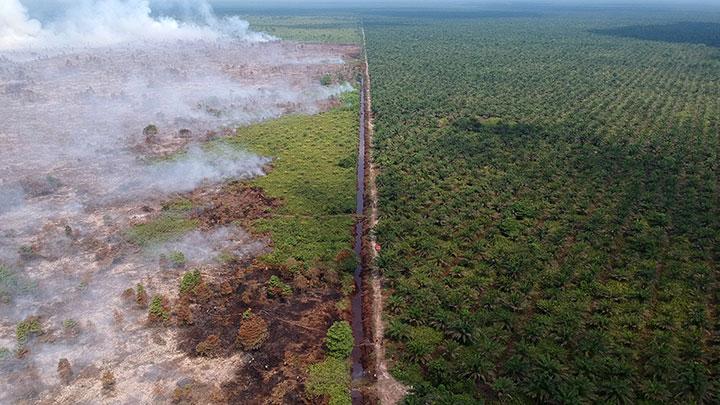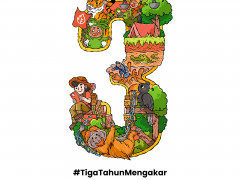Rupiah Collecting Firebreak
By Aries MunandarUrgency of Peatland Restoration
Observations were made at 1,222 sample points of restoration implementation on burned peat areas and peat conservation areas in 43 concession companies in seven provinces. 68.7 percent of the 482 field verification points in burned peat areas have become abandoned land without any restoration efforts, while the rest is planted with oil palm and acacia.
This is a violation of the applicable regulations. According to Government Regulation No. 57 of 2016 in conjunction with Government Regulation No. 71 of 2014, damage to the peat ecosystem must be addressed and subsequently restored by the concession holder.
Moreover, the MoEF Regulation No. 16 of 2017 Article 14 also states that the restoration of degraded areas through rehabilitation of burned areas should be carried out through revegetation or replanting with native peat plants.
With the findings of violations that still occur in concession areas, it is very important to evaluate the implementation of restoration activities, especially the reasons why companies have not carried out peat restoration according to the government's mandate.
Unfortunately, the company's absence in peat restoration efforts is a threat to Indonesia's peat ecosystem. Peat that is left to degrade will have a negative impact on the environment. In fact, all restoration activities that have been carried out outside the concession areas will not be optimal considering the holistic landscape principle of peat restoration.
It is necessary to push for transparency in monitoring the implementation of peat restoration and ensure the effectiveness of law enforcement that can give a deterrent effect on violating companies.
Therefore, Pantau Gambut recommends the need for a monitoring system that can show the progress of restoration in concession areas and encourages a more strict and transparent mechanism for monitoring the implementation of restoration orders. In addition, Pantau Gambut also encourages multi-stakeholder participation for the progress and sustainability of peat restoration.*
*THIS ARTICLE WAS PREVIOUSLY PUBLISHED ON 2 JUNE 2021 ON ONLINE MEDIA TEMPO.CO




